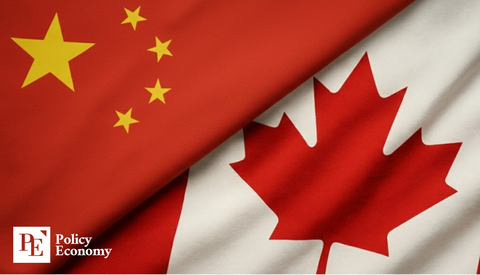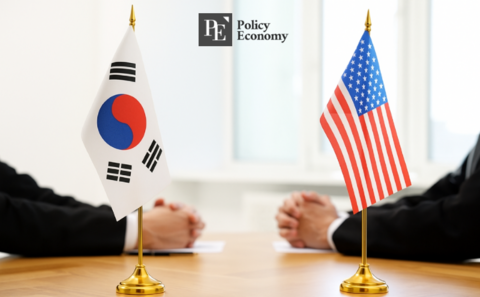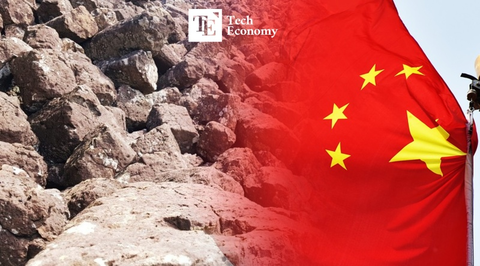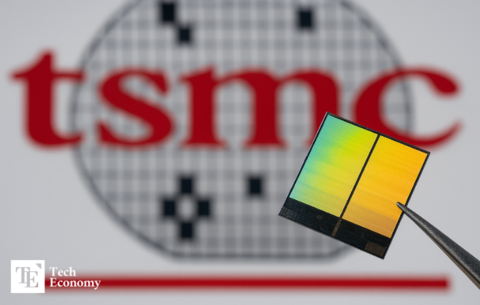U.S. to Impose Tariffs on Low-Value Packages, Casting a Shadow Over Korea's Cross-Border E-Commerce Boom
Input
Modified
Trump Administration Abolishes De Minimis Rule K-Beauty Sector, Highly Dependent on Cross-Border Sales, Faces Direct Blow Potential for Relative Benefit Compared to China Remains
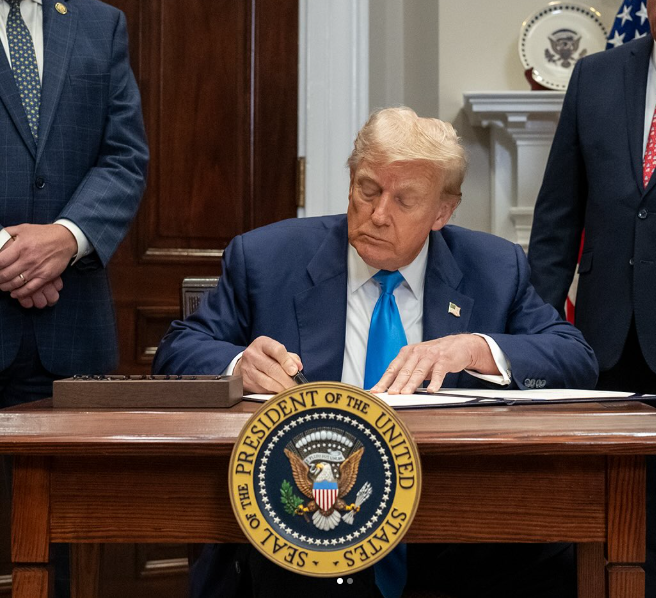
The Trump administration’s decision to eliminate tariff exemptions for low-value packages has sounded an alarm for South Korea’s cross-border e-commerce sector. The new tariffs, which will now be passed onto American consumers, are likely to trigger price hikes—eroding the price competitiveness that has fueled the rapid expansion of Korean brands in the U.S. market. In particular, K-beauty, which has seen soaring demand amid the ongoing Korean Wave, could face a growth-stalling setback due to this policy shift.
End of Tariff-Free Entry for Packages Under $800, K-Beauty in the Crosshairs
According to the White House on August 5 (local time), President Donald Trump signed an executive order on July 30 repealing the De Minimis provision, which had previously allowed tariff-free entry for low-value packages entering the U.S. from all countries, including South Korea. As a result, starting from the 29th of this month, all low-value parcels entering the U.S. through international postal networks will be subject to tariffs. For the first six months, both ad valorem duties (15% for South Korea) and specific duties—ranging from $80 to $200 per item—will be imposed concurrently. After this transition period, a unified ad valorem rate will be applied.
This measure expands upon the Trump administration’s earlier decision in May to revoke De Minimis privileges for packages originating from China and Hong Kong. Although the De Minimis regime had broadened consumer choice and eased the burden on the Customs and Border Protection (CBP), it had also come under fire for fueling trade imbalances and facilitating the meteoric rise of Chinese e-commerce giants such as Temu and AliExpress. South Korea has now been swept up in the global extension of this policy.
The impact on South Korea’s cross-border export market is expected to be adverse. As sellers adjust prices to offset the 15% tariff, U.S. consumers are likely to face higher purchase costs—diminishing the competitive pricing edge of Korean goods. According to Statistics Korea, South Korea’s cross-border e-commerce exports reached $1.22 billion last year, with the U.S. accounting for 20% of the total—second only to China (56.8%). From 2019 to 2024, exports to the U.S. posted a compound annual growth rate of 76%. Notably, fashion and cosmetics recorded the fastest growth, with five-year average annual growth rates of 90.2% and 61%, respectively.
Against this backdrop, K-beauty companies have thrived by bolstering their own cross-border platforms. CJ Olive Young’s ‘Global Mall’ saw a 70% year-on-year sales increase in the first half of this year, with over 40% of the gains coming from the U.S. market. Amorepacific’s cross-border e-commerce platform, ‘Global Amoremall,’ launched in 2023, reported that 70% of its users last year were American. The platform’s annual revenue surged 126% year-on-year, while visitor traffic jumped 72%.
As K-beauty products gained traction amid the Korean Wave, expectations for further expansion of the U.S. cross-border market had been high. According to industry data, American consumers spent $1.7 billion on K-beauty products last year—marking a more than 50% increase from the previous year. However, with the U.S. now imposing tariffs on all inbound parcels, concerns are mounting across the K-beauty industry over potential declines in both platform sales and customer traffic.
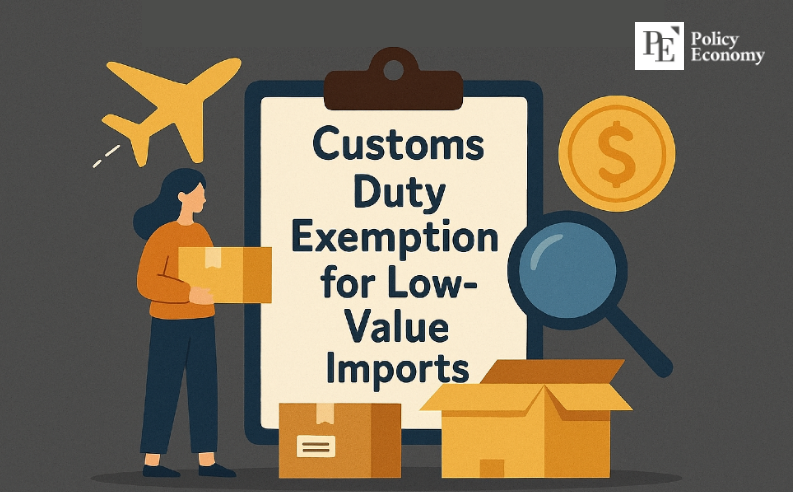
Blow to Ultra-Low-Cost Players Temu and Shein, U.S. Consumers Also Hit
Indeed, since the U.S. revoked De Minimis benefits for Chinese packages in May, Chinese e-commerce platforms Temu and Shein have suffered significant setbacks. Market research firm Sensor Tower reported that daily active users (DAU) for Temu and Shein fell 52% and 25%, respectively, between March and May. The trend was also reflected in app store rankings: Temu, which had previously held a top-three spot, plunged to 132nd in May, while Shein dropped from the top 10 to 60th. Their U.S. advertising expenditures have also shrunk dramatically—Temu by 87% and Shein by 69% over the past three months.
Temu had previously attracted American consumers with ultra-low prices, offering items like $9 wireless earbuds and $5 dresses—a feat made possible by the De Minimis rule. Since entering the U.S. market, parent company Pinduoduo saw explosive growth. As of Q1 2024, the company’s revenue rose 58% year-on-year, following a 131% surge in Q1 2023. Net profit soared from RMB 2.6 billion ($360 million) in Q1 2022 to RMB 28 billion ($3.9 billion) in Q1 2023—over a tenfold increase. The number of American Temu users reportedly exceeds 50 million, and the app was the most downloaded free app on the U.S. Apple App Store last year.
But with President Trump turning up the pressure on China through the repeal of the De Minimis rule and tariff hikes, Temu has been forced to overhaul its business strategy—bringing in domestic U.S.-based sellers with local warehouses. According to Bloomberg Second Measure, which analyzes credit card transaction data, Temu’s sales dropped 32% during the week of February 5–10, immediately after Trump first announced the policy change. The Wall Street Journal (WSJ) noted that “Temu’s strategic pivot has eroded its former price advantage over rivals like Amazon.”
U.S. consumers, too, are feeling the pain. The ripple effects—rising shipping fees and product prices—are already materializing on major e-commerce platforms. On Amazon, the world’s largest online marketplace and the most widely used in the U.S., price hike notifications are increasingly frequent. Amazon alerts users when the price of an item in their cart changes—and since the onset of Trump’s tariff campaign, price drops have virtually disappeared, with household staples seeing steady increases. For example, kitchen wrap prices rose from $14.97 to $17.67 (18%), school glue from $15.60 to $20.31 (30.2%), and thermometers from $19.99 to $29.99 (50%). All of these products are manufactured overseas, including in China.
Relative Advantage Over China’s 54% Tariff Burden
Still, some industry experts see a silver lining: South Korea could reap relative benefits compared to China in the competitive U.S. cross-border market. While Chinese platforms now face a 54% tariff burden, South Korean goods are subject to just 15%—a significantly lower rate. From the American consumer’s perspective, the price hike on Korean products may seem modest compared to the sharp increases on Chinese goods, enhancing Korea’s value-for-money appeal. Although Korean products are now at a disadvantage relative to domestic U.S. goods, the new policy could redirect consumer attention away from Chinese imports and toward Korean alternatives.
The South Korean government has also pledged support. On July 31, the day after the executive order was signed, President Lee Jae-myung addressed the issue during the 6th Senior Presidential Secretary Meeting at the presidential office in Yongsan, ordering a review of regulations hindering the growth of the cross-border e-commerce market. “Despite surging overseas demand for Korean products driven by the Korean Wave, our cross-border export market remains sluggish due to various barriers,” said President Lee. “Meanwhile, overseas direct purchases by Koreans are growing rapidly.” He added, “Expanding cross-border e-commerce would allow us to boost exports without even stepping outside the country,” and urged relevant ministries to formulate countermeasures. He further stressed the need to eliminate “irrational practices and regulations” that are stifling corporate growth.
The Ministry of SMEs and Startups is also closely monitoring developments. A ministry official stated, “We are gathering feedback from across the industry—including the beauty and fashion sectors—and are thoroughly examining the situation,” adding, “With about a month remaining before the executive order takes effect, we plan to evaluate the impact through multiple channels and conduct an in-depth analysis.”




